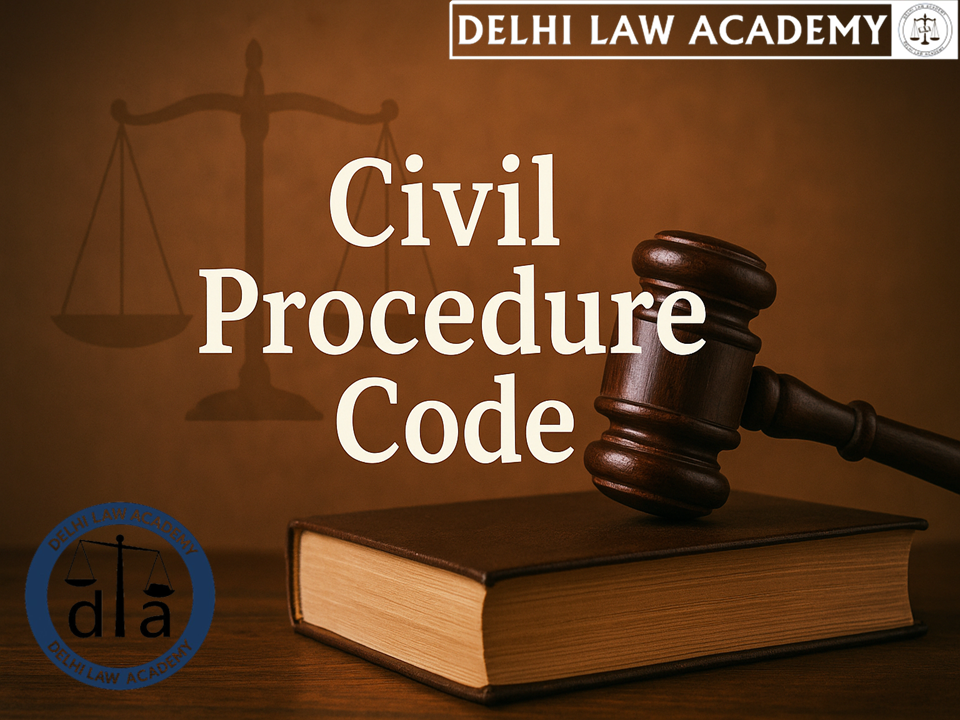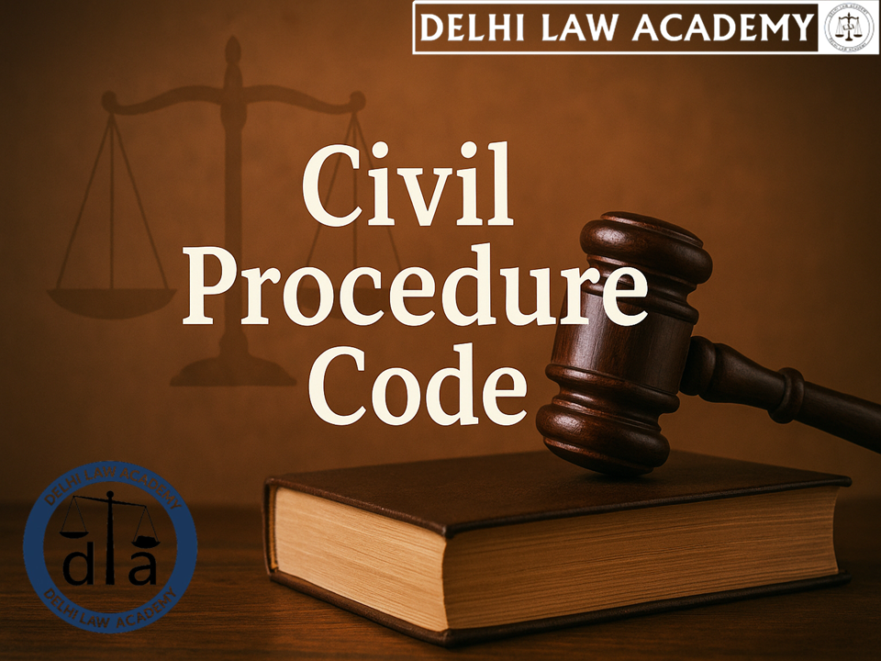
⚖️ CIVIL PROCEDURE CODE: APPEALS FROM ORIGINAL AND APPELLATE DECREES
📘 TOPICS
- Supreme Court Constitution Bench on the right of appeal
- Can construction /interpretation of a document raise a question of law?
- What rights of appeal against an original decree are available to a litigant?
- In what situations can an appeal be filed against an appellate decree?
- What is a Letters Patent Appeal?
⚖️ Supreme Court Judgments considered in this post:
- Garikapati Veeraya v. N Subbiah Choudhry [1957 SC]
- Raghunath Prasad Singh v. Dy Commissioner Partabgarh [1927 PC]
- Chunilal Mehta & Sons v. Century Spg. & Mfg. Co. [1962 SC]
🧾 Decision of the Supreme Court
- Institution of a suit carries with it the implication that all rights of appeal then in force are preserved to the parties thereto till the rest of the career of the suit.
- Although it may be actually exercised when the adverse judgment is pronounced, such right is to be governed by the law prevailing at the date of institution of the suit or proceeding and not by the law that prevails at the date of decision or at the date of filing of appeal.
- Construction /interpretation of a document of title or of a document which is the foundation of the rights of parties necessarily raises a question of law.
To help aspirants of RJS, DJS, PCS (J) and every other Judicial Service exam, DELHI LAW ACADEMY JAIPUR has launched a series of study material modules on all important aspects of this vital part of their syllabus.
📜 APPEALS FROM ORIGINAL DECREES
Section 96(1)
Save where otherwise expressly provided:
An appeal shall lie from every decree passed by any Court exercising original jurisdiction to the Court authorized to hear appeals from decisions of such Court.
Section 96(2)
An appeal may lie from an original decree passed ex parte.
Section 96(3)
No appeal shall lie from a decree passed by Court with consent of parties.
Section 96(4)
No appeal shall lie except on a question of law from a decree in any suit cognizable by courts of small causes when value of original suit does not exceed Rs. 10,000.
🧠 Explanatory Notes from DLA on Section 96
⚖️ Supreme Court Constitution Bench on the Right of Appeal
- Institution of a suit carries with it the implication that all rights of appeal then in force are preserved to the parties thereto till the rest of the career of the suit.
- The right of appeal is a vested right and such a right to enter the superior court accrues to the litigant and exists as on and from the date the lis commences.
- Although it may be actually exercised when the adverse judgment is pronounced, such right is to be governed by the law prevailing at the date of institution of the suit or proceeding and not by the law that prevails at the date of decision or at the date of filing of appeal.
- This vested right of appeal can be taken away only by a subsequent enactment if it so provides expressly or by necessary intendment and not otherwise.
Source: Garikapati Veeraya v. N Subbiah Choudhry [1957 SC]
📘 Where No Appeal from Preliminary Decree – Section 97
Where any party aggrieved by a preliminary decree does not appeal from such decree, he shall be precluded from disputing its correctness in any appeal preferred from the final decree.
⚖️ Where Appeal Heard by Two or More Judges – Section 98
- Appeal shall be decided in accordance with the opinion of majority of such Judges.
- If no such majority concurs in a judgment varying or reversing the decree appealed from, such decree shall be confirmed.
- Where the Bench is composed of two Judges and these Judges differ on a point of law, they may state the point of law upon which they differ, and the appeal shall then be heard upon that point only by one or more other Judges.
📜 No Decree to be Reversed or Modified – Section 99
No decree shall be reversed or substantially varied in appeal on account of any misjoinder or non-joinder of parties or causes of action or any error, defect or irregularity in any proceeding in the suit not affecting merits of the case or jurisdiction of the Court.
Proviso: This section shall not apply to non-joinder of a necessary party.
⚖️ APPEALS FROM APPELLATE DECREES
- Section 100(1) – An appeal shall lie to the High Court from every decree passed in appeal by any Court subordinate to a High Court if the High Court is satisfied that the case involves a substantial question of law.
- Section 100(2) – Appeal may lie from an appellate decree passed ex parte.
- Section 100(3) – Memorandum of appeal shall precisely state the substantial question of law involved.
- Section 100(4) – If satisfied, the High Court shall formulate that question.
- Section 100(5) – Appeal shall be heard on the questions so formulated.
📘 Explanatory Notes by DLA on Section 100
Question 1: Can construction /interpretation of a document raise a question of law?
Answer: Construction /interpretation of a document of title or of a document which is the foundation of the rights of parties necessarily raises a question of law.
📚 Continue Your CPC Preparation
Don’t stop here! Strengthen your knowledge of the Civil Procedure Code with our other fully solved tests:
📘 Free Study Material for Judiciary Aspirants!
Download our FREE study material prepared by Delhi Law Academy’s expert faculty.
❓ Frequently Asked Questions: CPC Sections 96–100
An appeal from an original decree lies under Section 96 of CPC to the Court authorized to hear appeals from a Court exercising original jurisdiction. An appeal from an appellate decree lies under Section 100 to the High Court if a substantial question of law arises. Original decree appeals review the trial court’s decision; appellate decree appeals review decisions of subordinate appellate courts.
Letters Patent Appeal (LPA) is an appeal from a decision of a single judge to another bench of the same High Court. It is governed by the Letters Patent of the High Court, created under the Indian High Courts Act 1861. LPAs allow review by a larger bench within the same court.
Yes. As per Supreme Court rulings, construction or interpretation of a document of title or a foundational document for the rights of parties necessarily raises a question of law, which can form the basis of an appeal under Sections 96–100 CPC.
Section 96 restricts appeals in the following cases:
• No appeal lies if the decree is passed with consent of parties.
• No appeal on questions of law for small causes courts when the suit value ≤ ₹10,000.
• Appeals from preliminary decrees are restricted if no appeal is filed at that stage (Section 97).
If a two-judge bench differs on a point of law, they can state the point of difference, and the appeal is referred to one or more other judges. The decision is then made according to the opinion of the majority, including judges from the original bench (Section 98).
No. Under Section 100 CPC, an appeal from an appellate decree to the High Court is allowed only if the case involves a substantial question of law. The memorandum of appeal must state this question precisely, and the High Court formulates and hears the appeal only on such questions.
Contact us
📍 Delhi Law Academy – Jaipur Branch
6C, Tower 2, Coaching Hub, Pratap Nagar, Jaipur – 302033
📞 Phone:
+91 9911916552
+91 8447285606
✉️ Email:
contactus@delhilawacademy.com

